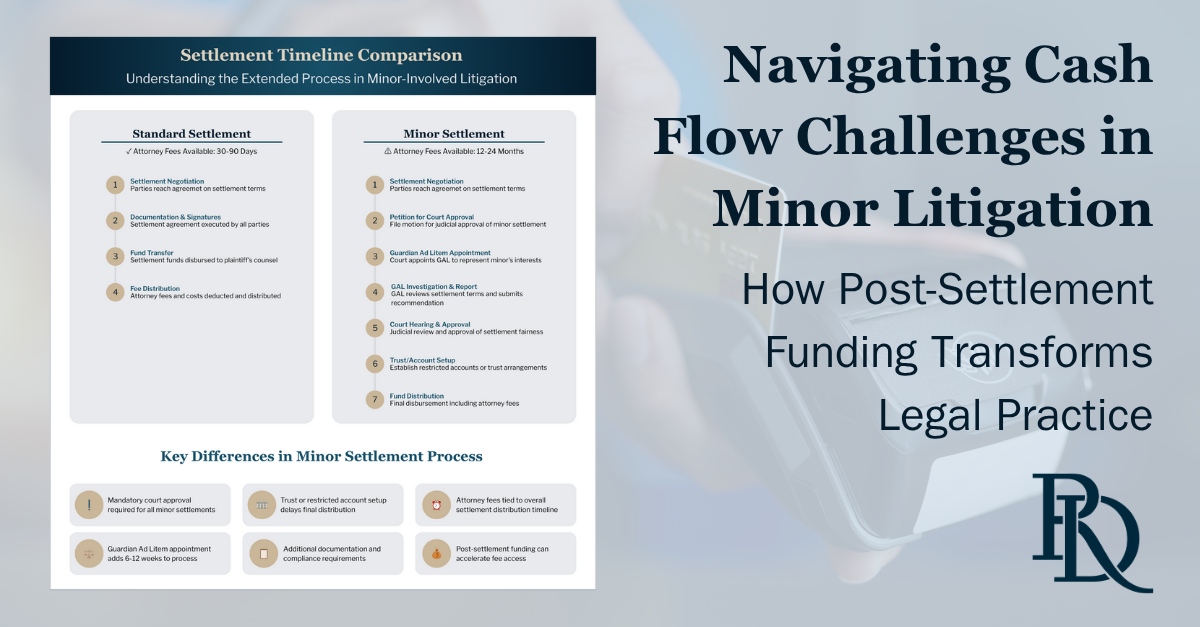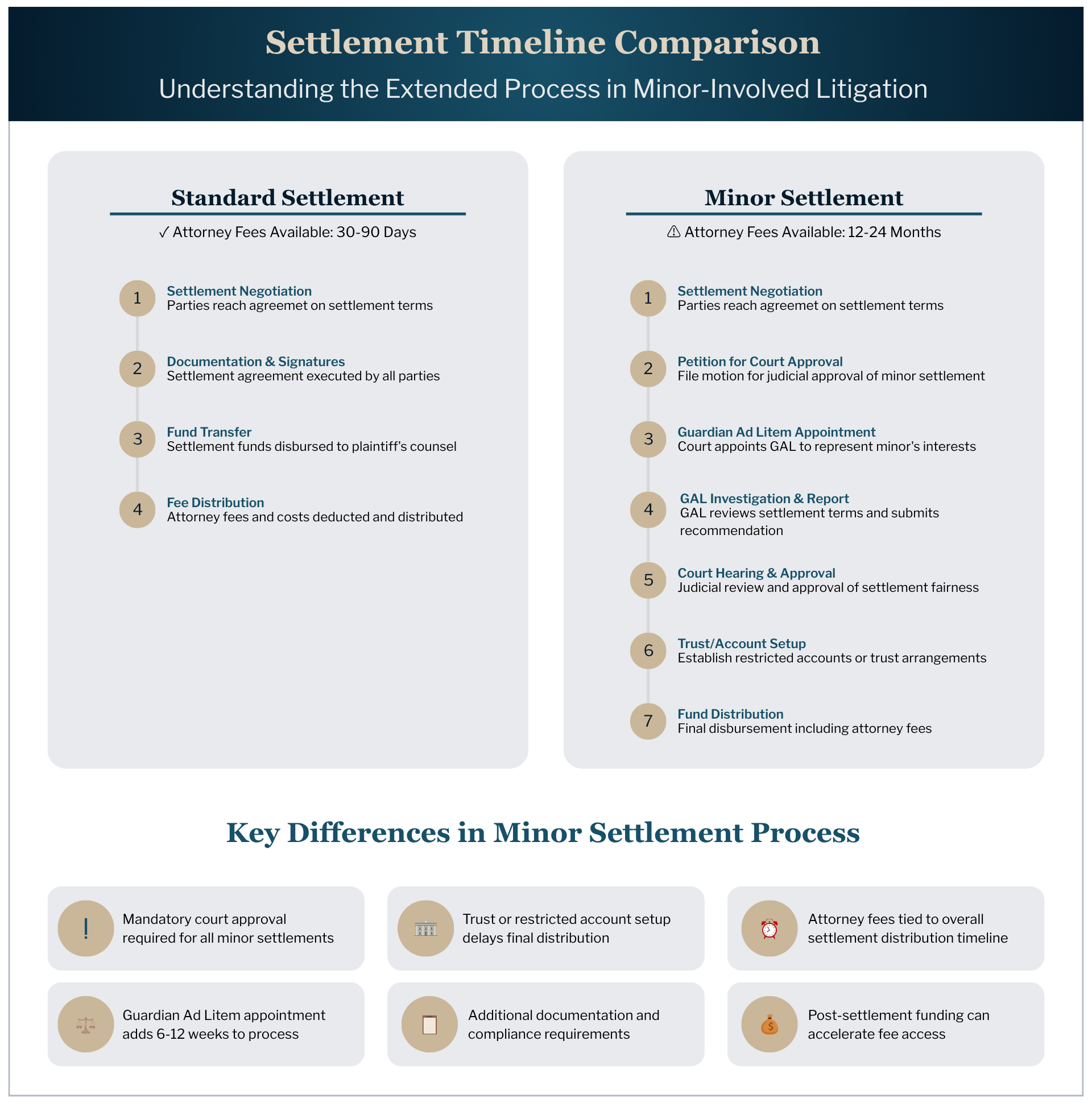
The legal landscape presents unique financial challenges when representing minors, creating extended fee collection timelines that strain law firm operations. For most law firms, delayed fee collections create significant cash flow pressures. This makes it especially challenging to generate profits from minor cases, where already thin margins are further strained by collection delays. While judicial protections for minors remain essential, the extended timelines for fee disbursement create substantial operational pressures for contingency-based practices.
Settlement agreements involving minors require court approval to become legally binding, triggering multiple levels of protective measures that can extend fee collection timelines by as much as 12 months and occasionally longer. Following settlement negotiations, counsel must file petitions for judicial approval, undergo hearings to assess settlement fairness, and often work with court-appointed Guardian Ad Litem representatives who independently evaluate terms and advise on fund management.
Many jurisdictions mandate that settlement proceeds be placed into trusts or restricted accounts until minors reach majority age. These critical safeguards protect vulnerable parties but create an unintended consequence: earned legal fees become trapped in the same extended distribution timeline.
For firms operating on contingency arrangements, this delay transforms legal victories into cash flow challenges. Despite successful case resolution and court approval of attorney fees, the actual receipt of compensation may be delayed for months or years.

The financial strain extends beyond simple payment delays. Law firms must continue meeting operational expenses, payroll obligations, and case development costs while waiting for fee disbursement. This creates a particularly acute challenge for practices that rely heavily on contingency-based revenue streams.
"Law firms representing minors face a paradox," explains Roni Dersovitz, founder of RD Legal Funding. "They're doing essential work that requires substantial investment and expertise, yet the very protections designed to safeguard their clients create significant financial pressure on their practice."
The ripple effects impact more than immediate cash flow. Law firms must continuously build their case pipeline to maintain revenue streams, yet unpredictable payout timelines make accurate budgeting and financial planning increasingly difficult, creating a challenging cycle of cash flow uncertainty.
Post-settlement litigation funding offers law firms immediate access to earned fees before court-ordered distribution timelines conclude. This specialized financing recognizes that court-approved attorney fees represent legitimate earned receivables, even when disbursement is delayed by judicial processes.
Unlike traditional lending, which often excludes contingency-based fees as acceptable collateral, litigation finance providers understand the unique nature of legal receivables. Once a settlement or judgment is finalized and attorney fees are court-approved, these receivables can be converted into working capital.
The strategic advantages extend beyond immediate cash access. Post-settlement funding enables firms to maintain consistent operations without the financial volatility created by extended collection periods. This stability supports better client service, as firms can dedicate resources to case development rather than cash flow management.
Firms utilizing litigation funding report improved ability to handle complex cases that might otherwise strain resources. The financial cushion allows for more strategic case selection and better preparation, ultimately enhancing client outcomes and firm reputation.
Successful contingency-based firms increasingly view litigation finance as a strategic tool rather than emergency funding. By proactively managing cash flow through post-settlement funding, firms can optimize their financial position and reduce operational risk.
The key lies in understanding when and how to leverage these financial tools. Firms should evaluate their current case portfolio, identifying matters where fee collection delays might impact operations. Early planning allows for more favorable financing terms and smoother integration into existing financial management systems.
Forward-thinking law firms recognize that effective cash flow management enables sustained growth and improved client service. By removing the financial constraints created by delayed fee collections, firms can focus on their core mission: delivering exceptional legal representation.
Ready to transform your firm's cash flow management and eliminate the financial strain of delayed fee collections?
Contact RD Legal Funding at (800) 565-5177 or info@legalfunding.com to discover how post-settlement litigation funding can strengthen your practice's financial foundation.
RD Legal Funding has been helping business owners turn legal victories into immediate financial results for over 25 years.